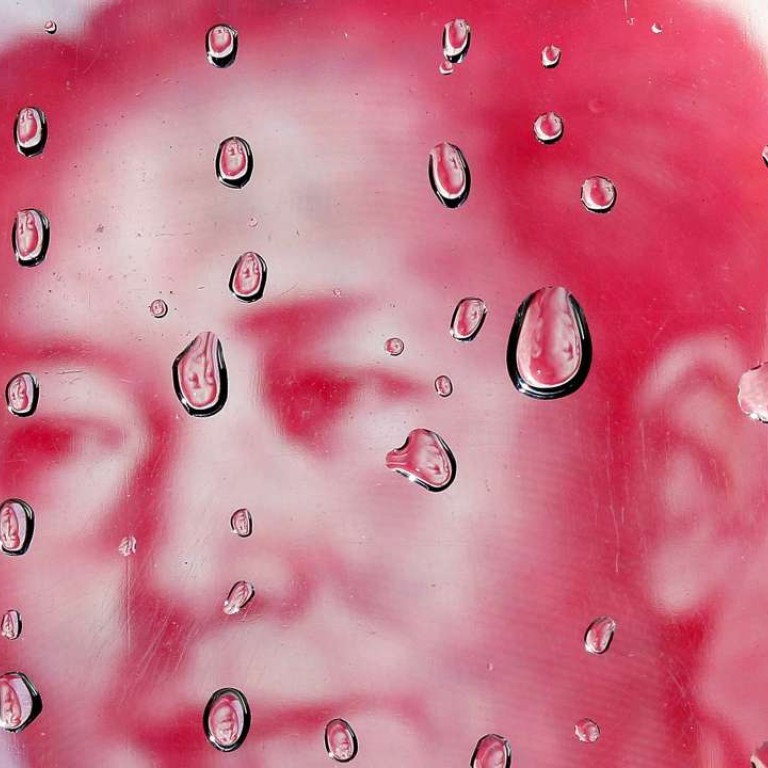
Offshore yuan falls to one-month low ahead of US Fed chair’s speech on interest rates
Pound and Euro strengthen, while yen weakens ahead of Fed chair’s speech at 11pm tonight
The offshore Chinese yuan fell to one-month low against the US dollar on Friday morning, ahead of a key speech by the US Federal Reserve chair Janet Yellen later in the day.
The offshore yuan, which trades in Hong Kong, was down 0.15 per cent to 6.6814 per US dollar on Friday morning, the lowest level in a month. So far this week, it has fallen 0.34 per cent, adding to a 0.06 per cent drop last week.
The onshore yuan trading in Shanghai dropped 0.13 per cent to 6.6648 per US dollar. The rate has weakened 0.2 per cent following a 0.29 per cent loss last week.

“Today’s focus will clearly be on the Fed chair Janet Yellen’s speech at Jackson Hole,” said Stephen Innes, senior trader at OANDA.
He said most traders have ruled out the Hawkish Pain Trade, a term referring to a US interest rate rise in September, while they predict that the rate increase is more likely to come in December.
“The market is now very comfortable with low volatility. While the Feds are likely a bit concerned about investors taking too much repose in this period and perhaps taking on much bigger risks, it is unlikely that the Feds will aggressively alter the funding landscape to avoid massive market fall out,” Innes said.

“At this point, I do not view this as a change in monetary policy, but rather nudging borrowers towards longer term funding and perhaps the first stages of implementing a transparent funding band,” Innes said.
“Bondholders typically like funding with the cheapest end of the curve, which is the overnight Repo (repurchase agreement) markets, and this move could pressure bond markets as funding cost would move higher. It is also designed to ensure that short-term money gets distributed to the economy and not speculators,” he added.
The PBOC on Friday set the yuan’s daily reference rate against the US dollar at 6.6488, stronger by 114 basis points, or 0.17 per cent, from Thursday’s fix. On Thursday, the Chinese central bank set the yuan’s fixing rate weaker by 0.27 per cent.
Traders are allowed to trade up to 2 per cent either side of the reference rate for the day.
The PBOC on Monday surprised the market and fixed the yuan weaker by 441 basis points or 0.67 per cent, the biggest weakening move in a year since its one-off devaluation of 1.9 per cent on August 11, 2015.
Tommy Ong, managing director of treasury and markets at DBS Hong Kong, said the PBOC aimed to prepare the yuan for a future fall ahead of the Jackson Hole meeting.
“A rising of US interest rate would affect the yuan. The PBOC is likely to do some preparation for that. However, Yellen may well not talk about the interest rate would rise in September as she may focus to talk more about the long-term economic policy on the US at the Jackson Hole Symposium,” Ong said.
On Friday morning, the greenback traded stronger against the Japanese yen, but weakened against the pound and euro.
The US dollar bought 100.46 yen on Friday morning, up 0.06 per cent. So far this week, the yen has been weaker against the US dollar by 0.25 per cent, on track to end a four-week winning streak.
The pound traded at US$1.3206, up 0.12 per cent. However, on a weekly basis, it has been down 0.25 per cent.
The euro was stronger against the US dollar by 0.12 per cent, trading at US$1.1286. On a weekly basis, it is down 0.33 per cent.
The Hong Kong dollar remained on the strong side of the peg, trading at 7.7546 against the greenback, just a shade away from this year’s highest level of 7.7503 on January 4.

